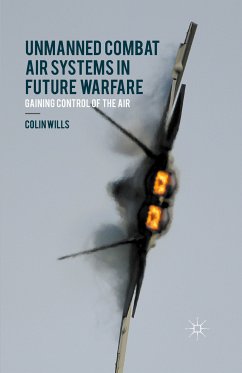
Unmanned Combat Air Systems in Future Warfare (eBook, PDF)
Gaining Control of the Air
Versandkostenfrei!
Sofort per Download lieferbar
80,95 €
inkl. MwSt.
Weitere Ausgaben:

PAYBACK Punkte
40 °P sammeln!
Control of the air is the foundation for all conventional military operations against an adversary with an air defence capability. In future warfare, will it be possible for Unmanned Combat Air Systems to undertake the tasks and accept most of the risks that, until now, have been the lot of military aviators?
Dieser Download kann aus rechtlichen Gründen nur mit Rechnungsadresse in A, B, BG, CY, CZ, D, DK, EW, E, FIN, F, GR, HR, H, IRL, I, LT, L, LR, M, NL, PL, P, R, S, SLO, SK ausgeliefert werden.












